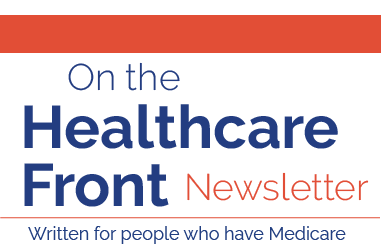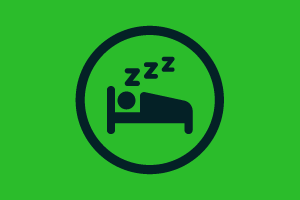
|
Issue #35 March 2025 Newsletter issues will tell you about Acentra Health’s free services for people who have Medicare as well as information from Medicare and other health-related tips. Do you receive email reminders when new issues of On the Healthcare Front are published? |
when should you call acentra health?
- If you are not ready to be discharged from the hospital.
- If your Medicare skilled services are ending too soon. Examples of skilled services include things like physical therapy and nursing services.
- If you have a concern about the quality of care you received.
- If you have a concern about your medical care that needs to be taken care of right away.
Click on the button below for the phone number for your state. These services are free for people who have Medicare.

new podcast episode
If you need rehab at a skilled nursing facility after your surgery, listen to our latest Aging Health Matters episode. Our guest shares information about the criteria for Medicare to cover care in a skilled nursing facility.
Listen now:
Episode 29: Learn About Medicare and Skilled Nursing Facility Care
For more information about skilled nursing facilities, visit www.medicare.gov:
- Skilled Nursing Facility Care Information
- Medicare Coverage of Skilled Nursing Facility Care (PDF document)
march is national nutrition month
Good nutrition is needed to stay healthy, especially as you plan for surgery. Eating well can help manage health conditions, boost energy, and improve your overall well-being.
In honor of National Nutrition Month, here are helpful websites to guide you in making smart food choices. Whether you’re looking for healthy meal ideas, tips for eating on a budget, or advice on managing your diet with Medicare-covered services, these links can help.
Click below to learn more!
sleep awareness week: the power of rest for your health
Getting enough sleep is essential for overall health.
Sleep Awareness Week, March 9-15, is a great time to focus on the benefits of quality rest. This is extra important while recovering from surgery. Sleep plays a key role in healing, helping your body repair tissues, reducing inflammation, and regaining strength.
The National Institute on Aging’s Sleep and Older Adults page talks about topics such as how age affects sleep and tips for getting a good night’s sleep.
If you have trouble sleeping, Medicare may cover certain treatments or services that can help.
don't keep this a secret
Share this newsletter with friends who have Medicare by sharing this link: www.acentraqio.com/ohf/March2025
are you planning an elective surgery? as someone who has medicare, here are some things you should know.

Elective surgeries, such as knee or hip replacements, can make your life better by allowing you to continue to do activities that you’ve grown to enjoy. Many times, this type of surgery doesn’t need to be done right away, which gives you time to plan.
Elective surgery doesn't always mean it's optional. Instead, it means the surgery isn't an emergency and can be scheduled in advance.
understanding medicare coverage
Medicare covers elective surgeries as long as your doctor considers the surgery to be medically necessary. Coverage depends on if you have Original Medicare (also called Fee-for-Service) or a Medicare Advantage plan.
for original medicare
If you have Original Medicare (Parts A & B), check if your surgery is covered under Part A (hospital stays) or Part B (outpatient services such as home health services, doctor visits, and some medical supplies related to the surgery). Medicare Part D covers prescription drugs, which include pain medications you may need after surgery.
Medicare.gov has information to help you estimate how much you’ll pay:
If you have a Medigap policy (also called Medicare Supplement Insurance), it may help cover some out-of-pocket costs.
for original medicare and medicare advantage
Take the time to ask about any cost-sharing responsibilities. Expenses can include deductibles, co-payments, and co-insurance. They may differ based on your plan.
Make sure your hospital, surgeon, and anesthesiologist accept Medicare or Medicare Advantage to avoid surprise charges.
An anesthesiologist is a doctor who specializes in giving anesthesia, a medicine that keeps you from feeling pain during surgery and other medical procedures.
FOR MEDICARE ADVANTAGE
If you have a Medicare Advantage plan, check to see if your providers (e.g., hospitals, surgeon, etc.) are in-network. Also, ask about prior authorization requirements.
checking hospital quality ratings
Choosing a high-quality hospital can make a big difference in your results after surgery. You can use Medicare’s Care Compare tool to compare hospitals. Patient outcomes (the results of care and treatment a patient receives) and overall quality of care are highlighted. Look under the complications section to see facts about infection and complication rates.
preparing for recovery after surgery
Recovery is just as important as the surgery itself. Wherever you have surgery, you will meet with staff to talk about what you might need at home during your recovery. It helps to think about these things before surgery to be sure you have everything you’ll need.
Medicare Part B covers services with a doctor’s order such as:
- Home health care: This may include a visiting nurse or physical therapist.
- Durable medical equipment: Examples include walkers, crutches, or hospital beds.
Medicare Advantage plans can also cover these services. However, the details depend on your plan.
Depending on your surgery, your doctor may suggest staying at a skilled nursing facility before going home. A skilled nursing facility may help with rehab services such as physical therapy. Medicare Part A covers services but only if you are a hospital inpatient for at least three days before you're discharged. Be sure to ask hospital staff about your inpatient status while you’re in the hospital.
Planning ahead for elective surgery ensures that you understand your Medicare coverage. You will have time to choose a high-quality hospital and surgeon. Also, you can prepare for recovery. Take the time to compare costs, check provider ratings, and manage your care after surgery to ensure the best outcome.
|
More Information These articles can help you learn about different topics to prepare for your surgery. |
how acentra health's immediate advocacy services can help medicare patients after elective surgery

Recovering from elective surgery should be a smooth process. However, there are times when Medicare patients face unexpected issues after leaving the hospital. Whether its trouble arranging home health care, getting prescriptions filled, or understanding discharge instructions, these issues can slow down recovery and cause stress.
Sometimes, Acentra Health’s Immediate Advocacy services can help.
Immediate Advocacy is a free and confidential service for people with Medicare. It can help patients quickly resolve non-urgent medical issues.
Instead of struggling to find answers, Medicare patients can rely on Acentra Health to quickly get solutions by speaking directly with hospitals, skilled nursing facilities, and other healthcare staff involved in their care.
For Medicare patients, post-surgical care should never be a struggle.
|
More Information
|
Publication No. R146810-131-3/2025. This material was prepared by Acentra Health, a Medicare Quality Improvement Organization under contract with the Centers for Medicare & Medicaid Services (CMS), an agency of the U.S. Department of Health and Human Services. The contents presented do not necessarily reflect CMS policy.






